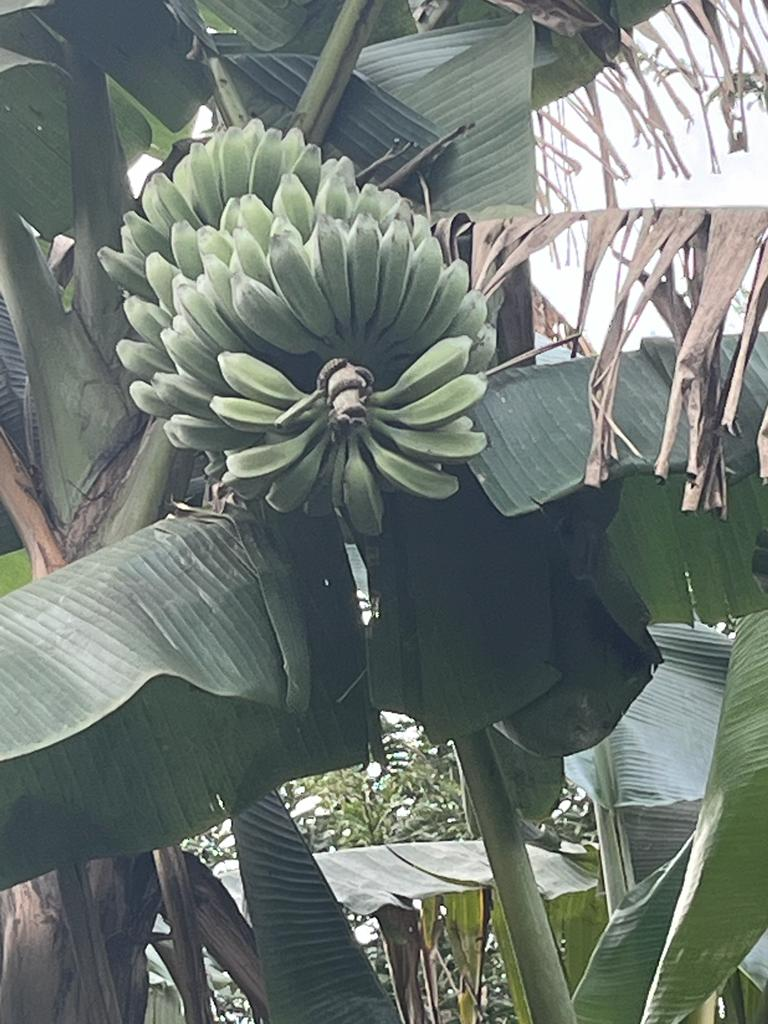MODULE 3: ORGANIC FARMING AND WASTE MANAGEMENT
Organic framing and waste management
Conducted on: november 5th 2023
Gulded by mrs. Vasanthamma
MODULE 3:
ORGANIC FARMING AND WASTE MANAGEMENT
Introduction:
Organic farming is a sustainable and eco-friendly farming method that focuses on cultivating crops without the use of synthetic fertilizers, pesticides, and other harmful chemicals. As part of the Social Connect and Responsibility subject of the 3rd semester Engineering course conducted by the CSE department of Proudha Devaraya Institute of Technology, the third module focuses on organic farming. In this program, all the students and teachers of PDIT learned about the importance of organic farming and the different practices involved.

Organic farming is becoming increasingly important due to its many benefits. It promotes healthy soil, reduces environmental pollution, and promotes biodiversity. Organic farming methods also promote better nutrition by reducing the amount of chemical residues in crops and increasing the nutrient content of the soil.
Benefits of Organic Farming: The Benefits of Organic Farming Organic farming has several benefits. Firstly, organic farming is better for the environment. By avoiding the use of synthetic pesticides and fertilizers, organic farmers help to protect biodiversity, reduce water pollution, and conserve natural resources. Secondly, organic farming is healthier. Organic food is free from synthetic chemicals, which means that it is healthier for us to eat. Finally, organic farming is more sustainable. By using natural methods of pest control and soil management, organic farmers can maintain the health of their soil and produce food in a way that is less damaging to the environment.
The Challenges of Organic Farming Despite its benefits, organic farming also faces several challenges. Firstly, organic farming can be more expensive and time-consuming than conventional farming. This is because organic farmers often need
Conclusion:
The module on organic farming was an excellent opportunity for the students and teachers of PDIT to learn about the importance of sustainable agriculture and the benefits of organic farming. It helped in promoting responsible citizenship and instilled a sense of responsibility towards preserving and protecting the environment. Through this module, we hope to inspire more students to take up initiatives in organic farming and contribute to a sustainable future. With the right knowledge and practices, we can promote healthier soils, cleaner water, and a healthier world for all.
WASTE MANAGEMENT
Introduction:
Waste management is a critical aspect of sustainable development and responsible citizenship. As part of the Social Connect and Responsibility subject of the 3rd semester Engineering course conducted by the CSE department of Proudha Devaraya Institute of Technology, the third module focuses on waste management. In this program, all the students and teachers of PDIT learned about the importance of waste management and the different methods of managing waste.


Effective waste management can help in reducing the impact of waste on the environment and promoting sustainability. It involves a range of activities, including waste reduction, reuse, recycling, and proper disposal.
Learning about Waste Management:
The students and teachers of PDIT learned about the different methods of waste management, including the 3Rs: Reduce, Reuse, and Recycle. They learned about the importance of reducing waste by using sustainable materials, minimizing packaging, and avoiding single-use items.
They also learned about the importance of reusing items, such as clothing, bags, and containers, and how it can help in reducing waste and conserving resources.

 Waste management is important for several reasons. Firstly, waste can have a negative impact on the environment. Improperly managed waste can pollute our air and water, harm wildlife, and contribute to climate change. Secondly, waste management is important for public health. Improperly managed waste can lead to the spread of disease and illness. Finally, waste management is important for resource conservation. Many of the items that we throw away can be recycled, reused or repurposed, and by managing our waste effectively, we can reduce our impact on the environment and conserve natural resources.
Waste management is important for several reasons. Firstly, waste can have a negative impact on the environment. Improperly managed waste can pollute our air and water, harm wildlife, and contribute to climate change. Secondly, waste management is important for public health. Improperly managed waste can lead to the spread of disease and illness. Finally, waste management is important for resource conservation. Many of the items that we throw away can be recycled, reused or repurposed, and by managing our waste effectively, we can reduce our impact on the environment and conserve natural resources.Effective waste management can also contribute to the economy by creating new jobs and generating revenue from the sale of recyclable materials. It can also help in promoting innovation and technology development, leading to new and more efficient methods of waste management.
The module on waste management was an excellent opportunity for the students and teachers of PDIT to learn about the importance of waste management and the different methods of managing waste. It helped in promoting responsible citizenship and instilled a sense of responsibility towards preserving and protecting the environment.
Through this module, we hope to inspire more students to take up initiatives in waste management and contribute to a sustainable future. With the right knowledge and practices, we can reduce the impact of waste on the environment and promote a healthier and cleaner world for all.









Comments
Post a Comment